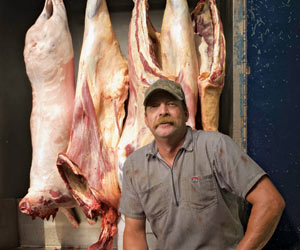in the 1960s, landscape architect Karl Linn transformed vacant lots in cities across the nation into “neighborhood commons”—early prototypes of the community garden. Contemporary food activists are defining urban agriculture more broadly, looking for ways to harvest fruits and veggies almost anywhere a seed will take root, from tiny backyards to 1600 Pennsylvania Avenue.
Finders Keepers “There is a ton of wild produce out there,” says 27-year-old Iso Rabins, founder of ForageSF, a San Francisco-based csa (community supported agriculture) startup whose members will be able to barter whatever they find growing in the city, from blackberries in parks to fennel in empty lots. In a similar vein, Fallen Fruit, a Los Angeles collective, produces maps of fruit trees whose branches overhang streets and sidewalks—”public fruit” ripe for the picking. Cofounder David Burns urges fellow urban gatherers not to get sticky fingers. “This is about making relationships,” he says, “not just grocery shopping.”
Going Hyperlocal Unable to find an affordable spot to start an organic farm in Oregon, Donna Smith launched Your Backyard Farmer and now tills 47 plots in Portland. Clients pay her $1,575 a year to plant and tend home gardens that yield enough organic produce for three. Meanwhile, in Oakland and San Francisco, Forage Oakland and MyFarm help their members share their backyard harvests with one another. MyFarm’s Chris Burley envisions a food chain where produce travels just “20 feet from farm to fork.”
Government Plots Last year, Daniel Simon, cofounder of the White House Organic Farm Project, drove cross-country in a school bus with a rooftop garden to promote sowing crops outside the Oval Office. President Obama has yet to say if he’ll take a cue from Eleanor Roosevelt, who planted a victory garden during World War II, inspiring a home gardening revival that once grew 40 percent of the country’s veggies. But the idea of civic gardening has grown on San Francisco mayor Gavin Newsom. Last summer, he put a quarter-acre garden in front of City Hall and has since planted a strawberry patch atop a bus shelter. And the city of Seattle’s P-Patch program annually harvests more than seven tons of produce for food banks. Its 2,500 plots have inspired others in unlikely places—like the raised bed that bank employees planted next to their drive-through window.
















